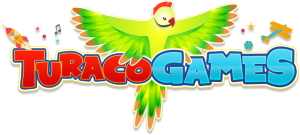Improve spelling through interactive games
Spelling can be tricky for learners to grasp because English spelling is not straightforward and actually quite complex: for every rule there are bound to be many exceptions. This is why it is important to incorporate games and fun activities into lessons which will help learners practise their spelling.
Here are a few popular games which can be utilised for this purpose:
Complete the picture
This game is especially appropriate for younger learners. The teacher chooses a word and the learners must guess what the word is by guessing a letter at a time. If the letter is correct the teacher fills in wherever that letter appears in the word. If the letter is incorrect i.e. it doesn’t feature in the word, the teacher draws one line of a drawing, for example, the nose of a bear. The learners continue guessing letters trying to guess the word before the entire picture has been drawn.
Преимущества VIP-программы Mostbet для российских игроков
В мире онлайн-гемблинга существует множество платформ, предлагающих свои услуги игрокам. Однако не все из них могут похвастаться VIP-программами, которые предоставляют особые привилегии и бонусы для своих пользователей. В этой статье мы рассмотрим преимущества VIP-программы Mostbet – одной из самых популярных онлайн-букмекерских платформ в России.
Отличительной чертой VIP-программы Mostbet является ее доступность для российских игроков. Независимо от того, являетесь ли вы новичком или опытным игроком, вы можете стать частью этой программы и наслаждаться ее преимуществами. Вам доступны бонусы на депозиты, повышенные лимиты на ставки, эксклюзивные предложения и многое другое. Не упустите возможность улучшить свой игровой опыт и повысить свои шансы на выигрыш – давайте узнаем больше о том, что предлагает VIP-программа Mostbet для российских игроков!
Уникальные возможности VIP-программы Mostbet для повышения шансов на выигрыш
Преимущества VIP-программы Mostbet для российских игроков являются веским аргументом в пользу выбора данного оператора для ставок и онлайн-казино. Во-первых, VIP-программа предлагает эксклюзивные бонусы и привилегии, которые недоступны обычным пользователям. Это может быть увеличенный размер бонусов за пополнение счета, специальные акции и турниры, а также индивидуальный подход к каждому VIP-игроку.
Во-вторых, VIP-программа Mostbet предоставляет возможность обмена баллов на реальные деньги. Каждая ставка и депозит приносит игроку бонусные баллы, которые могут быть использованы для пополнения счета или участия в специальных акциях. Благодаря этой функции, VIP-игроки имеют возможность получить дополнительный доход и повысить свои шансы на победу.
В-третьих, VIP-программа Mostbet предлагает персонального менеджера, который всегда готов помочь игрокам в решении любых вопросов. Менеджер предоставляет консультации по игре, помогает выбрать наиболее выгодные ставки и предлагает индивидуальные предложения, учитывающие интересы и потребности каждого VIP-игрока.
И наконец, VIP-программа Mostbet предоставляет возможность участия в эксклюзивных турнирах и конкурсах с большими призовыми фондами. Это отличная возможность для VIP-игроков проявить свои навыки и получить дополнительные выигрыши. Благодаря этим преимуществам, VIP-программа Mostbet является привлекательным вариантом для российских игроков, которые стремятся получить максимальное удовольствие от азартных игр и повысить свои шансы на успех.
Привилегии и бонусы, которые получают российские игроки с VIP-статусом в Mostbet
Преимущества VIP-программы Mostbet для российских игроков настолько впечатляющи, что они могут значительно повысить уровень удовлетворения от игры. Во-первых, участники VIP-программы могут наслаждаться эксклюзивными бонусами и специальными предложениями, которые недоступны обычным игрокам. Это может включать в себя бесплатные ставки, повышенные коэффициенты и дополнительные возможности для выигрыша.
Во-вторых, VIP-игроки Mostbet имеют доступ к персональному менеджеру, который обеспечивает индивидуальное обслуживание и поддержку. Это означает, что игроки могут получить помощь и консультацию по любым вопросам, связанным с игрой и платформой Mostbet. Это особенно полезно для новичков, которые могут получить рекомендации от опытных профессионалов.
Третье преимущество VIP-программы Mostbet для российских игроков – это быстрое получение выигрышей. VIP-игроки имеют приоритет при обработке выплат, что означает, что они получают свои выигрыши гораздо быстрее, чем обычные игроки. Это позволяет игрокам наслаждаться своими выигрышами в кратчайшие сроки и не ждать долго.
И, наконец, VIP-игроки Mostbet имеют доступ к эксклюзивным мероприятиям и турнирам. Это дает им возможность соревноваться с другими высококлассными игроками и получать дополнительные призы и награды. Участие в таких мероприятиях не только повышает азарт и вовлеченность, но и предоставляет возможность показать свои навыки и получить признание в игровом сообществе.
Все эти преимущества делают VIP-программу Mostbet незаменимым инструментом для российских игроков, которые хотят получить максимальное удовольствие от своей игры и повысить свои шансы на выигрыш. Чтобы стать участником VIP-программы Mostbet и насладиться всеми ее преимуществами, посетите mostbet247.com и зарегистрируйтесь прямо сейчас!
Персональный подход и высококлассное обслуживание в VIP-программе Mostbet для российских клиентов
Преимущества VIP-программы Mostbet для российских игроков являются весомыми и привлекательными. Во-первых, участие в этой программе позволяет игрокам получать больше бонусов и специальных предложений. В зависимости от уровня VIP-статуса, игроки могут получать эксклюзивные бонусы, бесплатные ставки и повышенные коэффициенты на свои ставки.
Во-вторых, VIP-программа Mostbet предлагает персональный менеджер для каждого игрока. Это означает, что у игрока будет свой личный помощник, который будет отвечать на все вопросы, помогать с различными вопросами и предлагать индивидуальные предложения. Такая индивидуальная поддержка позволяет игрокам чувствовать себя особенными и заботиться о них на более высоком уровне.
В-третьих, VIP-программа Mostbet предлагает быстрые и безопасные выплаты. Игроки с VIP-статусом имеют приоритетное право на обработку своих запросов на вывод средств, что позволяет им получать свои выигрыши быстрее. Кроме того, Mostbet гарантирует безопасность всех финансовых операций, что дает игрокам уверенность в сохранности своих средств.
Наконец, VIP-программа Mostbet предлагает доступ к эксклюзивным мероприятиям и турнирам. Игроки с VIP-статусом могут принимать участие в специальных турнирах с большими призовыми фондами и получать приглашения на эксклюзивные мероприятия, такие как футбольные матчи или концерты. Это отличная возможность не только насладиться развлечениями, но и укрепить связи с другими игроками и представителями Mostbet.
Расширенный выбор игр и специальные турниры, доступные только для участников VIP-программы Mostbet в России
VIP-программа Mostbet предлагает российским игрокам множество преимуществ, делая игру еще более увлекательной и прибыльной. Во-первых, участники VIP-программы имеют возможность получать эксклюзивные бонусы и специальные предложения, которые не доступны обычным игрокам. Это может включать в себя дополнительные бонусы на депозиты, увеличенные коэффициенты на определенные события или возможность участвовать в эксклюзивных турнирах и розыгрышах.
Во-вторых, VIP-программа Mostbet предоставляет персонального менеджера, который всегда готов помочь и ответить на все вопросы игрока. Это дает возможность получить индивидуальный подход и качественную поддержку, что особенно важно для игроков, стремящихся к высоким ставкам и большим выигрышам. Персональный менеджер также может предложить эксклюзивные ставки и предложения, основанные на предпочтениях и ставках игрока.
Наконец, участники VIP-программы Mostbet имеют возможность получить быстрые и приоритетные выплаты выигрышей. Они могут быть обработаны в кратчайшие сроки, без задержек и лишних формальностей. Это позволяет игрокам наслаждаться своими выигрышами максимально быстро и комфортно. Быстрые выплаты также являются доказательством надежности и профессионализма Mostbet, что делает VIP-программу еще более привлекательной для российских игроков.
Программа лояльности VIP-статуса в Mostbet: как стать участником и какие преимущества это дает российским игрокам
Преимущества VIP-программы Mostbet для российских игроков являются весьма значительными. Во-первых, участие в VIP-программе позволяет получать эксклюзивные бонусы и привилегии. Это может включать в себя повышенные коэффициенты на ставки, дополнительные бонусы на депозиты, персонального менеджера и доступ к закрытым турнирам и акциям.
Во-вторых, VIP-программа предоставляет игрокам дополнительные возможности для увеличения своих выигрышей. Благодаря особым условиям, участники программы могут получать больше выигрышей на свои ставки, а также имеют возможность участвовать в эксклюзивных акциях с крупными призами. Это делает игру еще более интересной и выгодной для игроков.
Наконец, VIP-программа Mostbet предлагает своим участникам высокий уровень сервиса и поддержки. У каждого игрока есть персональный менеджер, который всегда готов помочь в решении любых вопросов и проблем. Кроме того, VIP-игрокам предоставляется предпочтительное обслуживание, включая быстрые выплаты выигрышей и ускоренную верификацию аккаунта. Это позволяет игрокам наслаждаться игрой без лишних забот и получать максимальное удовольствие от своего опыта в Mostbet.
В заключение, VIP-программа от Mostbet предоставляет российским игрокам множество преимуществ, которые делают игровой опыт еще более захватывающим и выгодным. Благодаря эксклюзивным бонусам, персональному менеджеру, приоритетному обслуживанию и быстрым выплатам, игроки могут наслаждаться игрой без лишних хлопот. Кроме того, программу лояльности можно использовать на мобильном устройстве, что позволяет играть в любимые игры в любое время и в любом месте. Не упустите возможность стать VIP-игроком в Mostbet и получить все преимущества, которые они предлагают!
Scrabble
Based on the boardgame, this is easy to utilise in the classroom. All you need are a set of cards or tiles, each with one letter on. Divide the learners into groups. In each group each learner is given 7 letters. One learner is nominated to go first. He or she must use their letters to create a word and lay it on the table. The next learner must use that word to create a word with their 7 letters. Whenever a word is put down, the learner must pick up more letters so they always have 7 letters in hand. If a learner cannot make a word, they must pick up an extra letter and the next learner can go.
Online games
Of course, while there are loads of simple games that can be played in the classroom with very few resources, thanks to the internet there are now a whole range of interactive online games for our learners too. Encouraging our learners to play online games may seem counterintuitive but these games are guaranteed to maintain interest. These games can be played individually or as teams, which means that they can be played in the classroom and, if our learners enjoy them, they can be played at home. This effectively makes our learners spend time studying when in fact they feel like they are just having fun.
Learning spelling can be tough in a foreign language but it is a very necessary part of the process. One way we can help our learners study spelling is by incorporating games and tests into their everyday lessons. Just remember: the more fun, the better.




